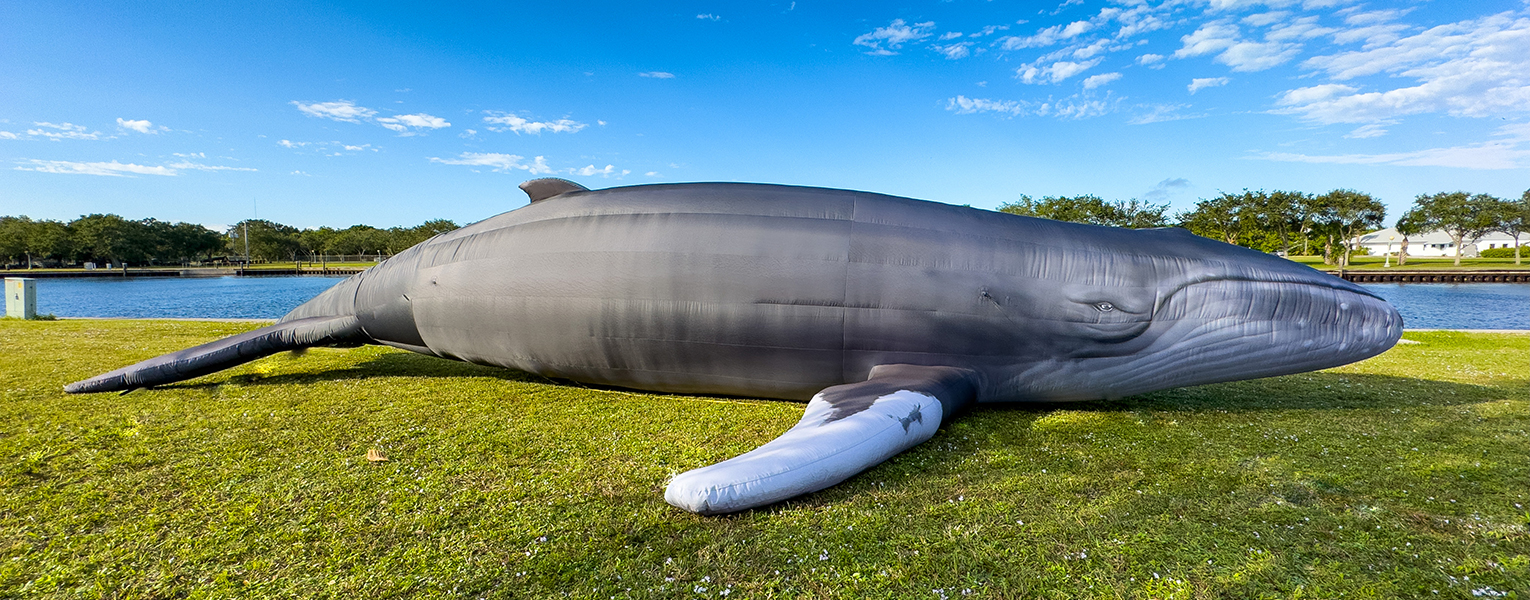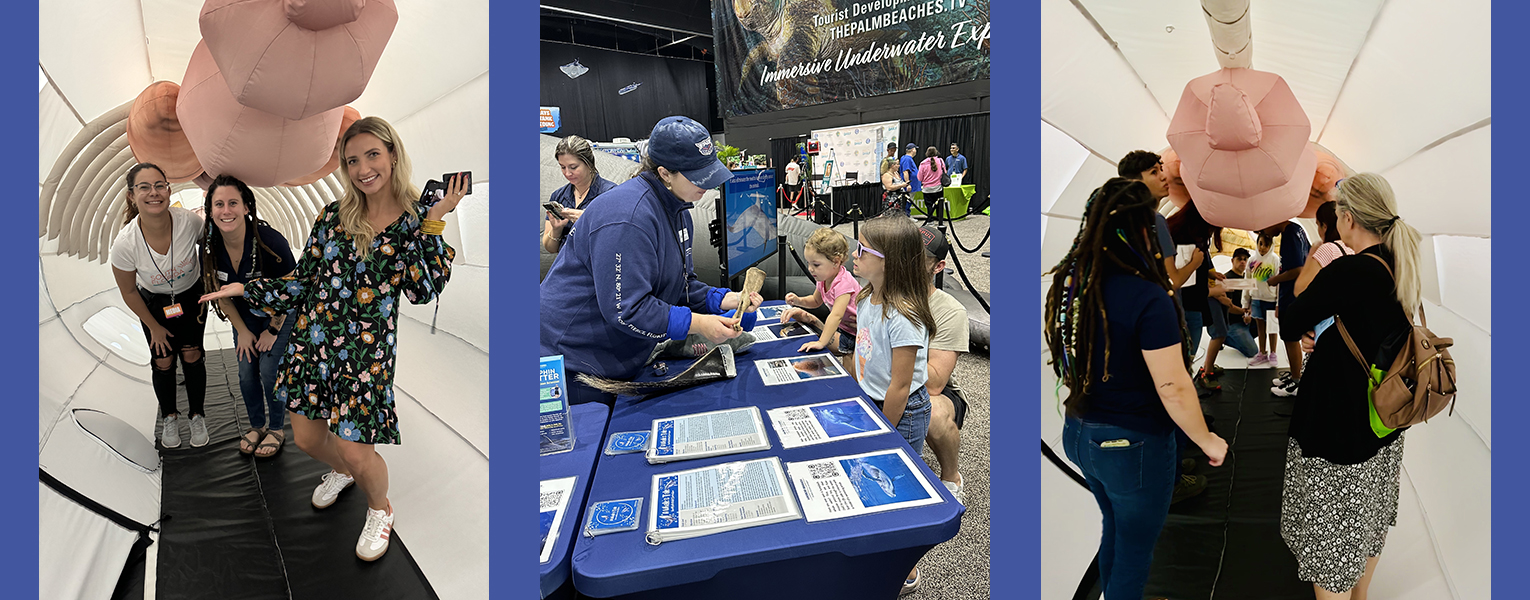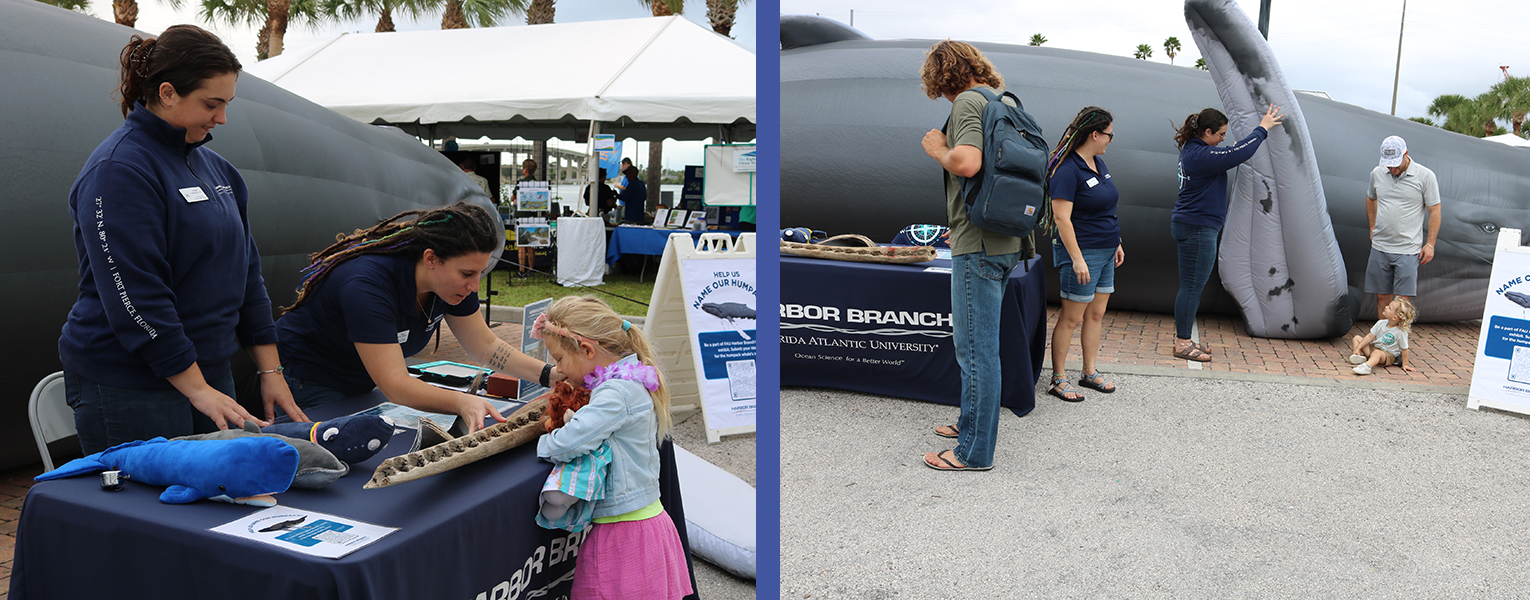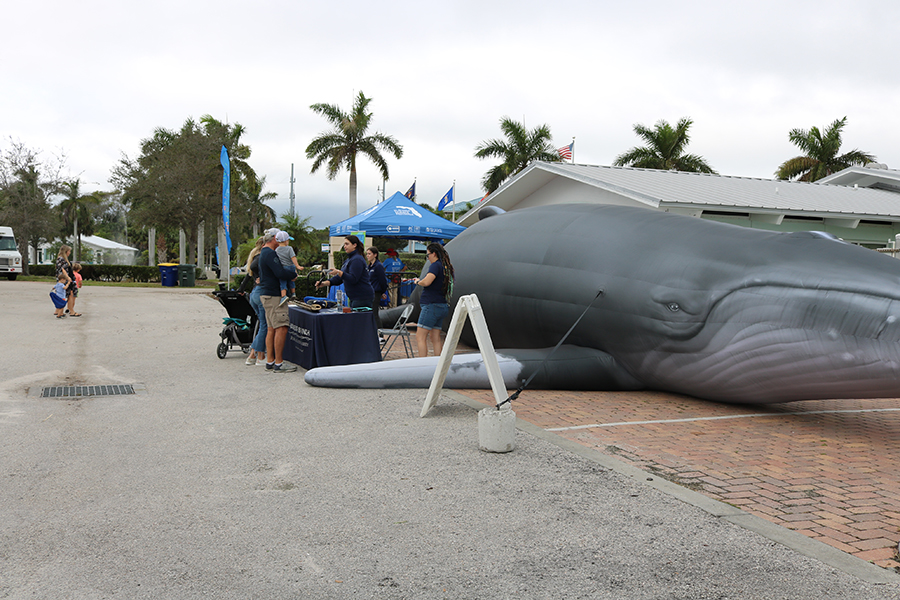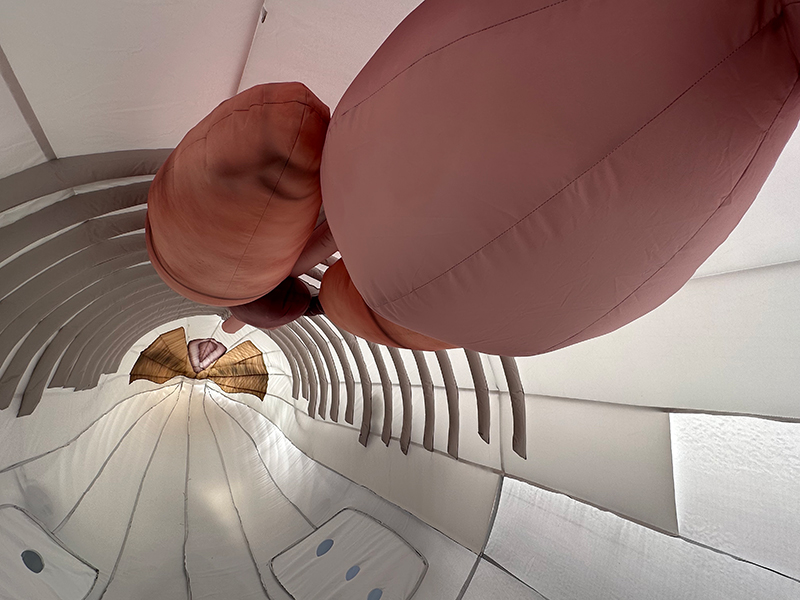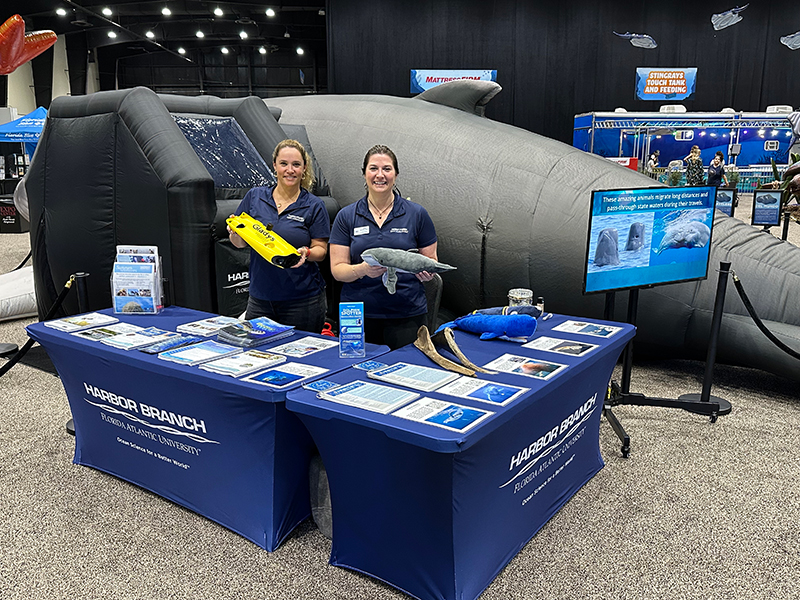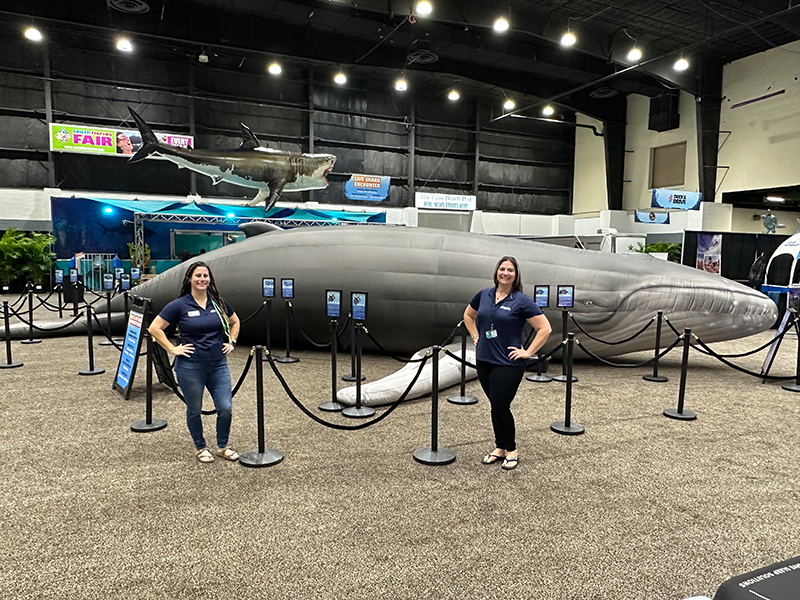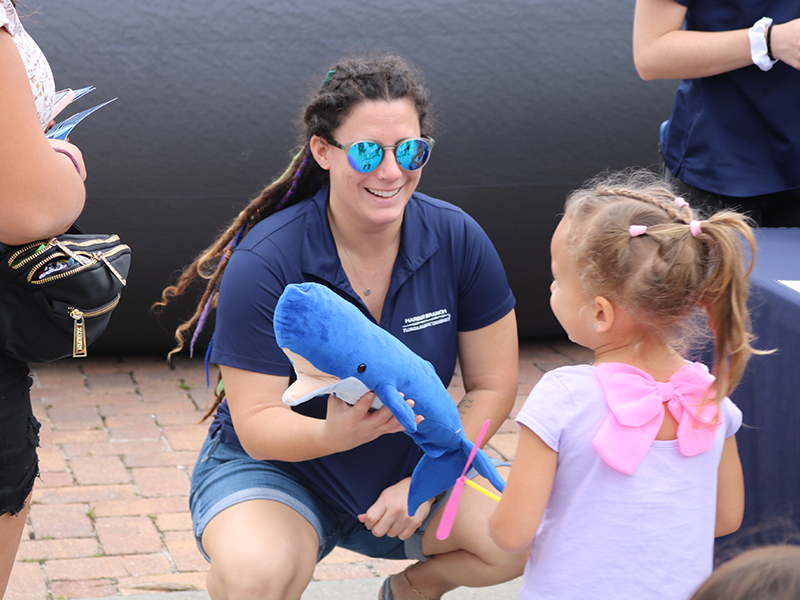2/15/2024
World Whale Day: Making a Splash
Step Inside a Life-sized Humpback Whale Replica
By Chelsey Matheson
Florida Atlantic University’s Harbor Branch Oceanographic Institute recently unveiled a new public education program: a traveling exhibit that features a life-sized inflatable humpback whale.
As many as 20 species of whale depend on Florida’s waters, however many residents and visitors are unaware of that these animals reside offshore. The new exhibit aims to educate people of all ages about one of the common local whale species, humpback whales. These majestic mammals travel south during the winter and spring months to areas that include the Atlantic Coast of Florida, where they give birth and tend to their infants.
“A lot of people don’t realize that we have humpback whales in Florida,” said Gabby Barbarite, Ph.D., director of Community Outreach and Engagement at Florida Atlantic Harbor Branch. “With this new exhibit, we’re educating people about these amazing animals and the important research we’re doing at FAU Harbor Branch.”
The exhibit is 45-feet long, which is the average size of an adult humpback whale. Simply standing next to the inflatable gives people a sense of these enormous animals, but what makes the exhibit unique, is the ability to step inside the whale’s belly and explore its inner anatomy. All its vital organs are on display, though scaled down to allow for space to fit inside.
The whale exhibit made its debut at the South Florida Fair in January. More than 11,000 people visited the exhibit where marine science educators, including Story and Barbarite, gave guided tours inside the whale, and shared important facts about whales and ocean conservation.
The goal moving forward is to make expand the exhibit’s reach to travel throughout the state of Florida. The whale would be featured at community events such as festivals and fairs and on display at conferences and partner facilities like museums and environmental centers. An addition to Harbor Branch’s already-existing curriculum on Florida whales is in progress to help bring awareness to current marine mammal research, as well as educate the next generation of scientists about career paths in science, technology, engineering and math.
“The purpose of this unique education project is to create a direct, impactful experience that will educate the public about Florida’s whales,” Barbarite said. “Our goal is to inspire people to become advocates for the protection and preservation of these animals.”
Note: Whale research, conservation and education are supported by funds from the Protect Florida Whales Specialty License Plate, which are granted through the Harbor Branch Oceanographic Institute Foundation.
If you would like more information, please contact us at dorcommunications@fau.edu.
About World Whale Day
World Whale Day is observed the third Sunday of February. The holiday began in 1980 in Maui, Hawaii to celebrate the humpback whales that migrate to the islands every year during the winter season to birth their young.
Humpback whales were one of the first animals to be protected by the Endangered Species Conservation Act of 1970. Since then, the species has seen a remarkable population recovery worldwide. The same can’t be said for all whale species, which is why World Whale Day aims to raise awareness about man-made challenges that negatively impact whales and all marine life. These include waste dumping, climate change, commercial fishing and marine traffic.
